Wiper blades
Wiper blade maintenance Commercial hot waxes applied by automatic car washes have been known to make the windshield difficult to clean.
Contamination of either the windshield or the wiper blades with foreign matter can reduce the effectiveness of the windshield wipers. Common sources of contamination are insects, tree sap, and hot wax treatments used by some commercial car washes. If the blades are not wiping properly, clean both the window and the blades with a good cleaner or mild detergent, and rinse thoroughly with clean water.
NOTICE
To prevent damage to the wiper blades,
do not use gasoline, kerosene, paint thinner,
or other solvents on or near them.
Windshield wiper blade replacement When the wipers no longer clean adequately, the blades may be worn or cracked, and require replacement.
NOTICE
To prevent damage to the wiper arms or
other components, do not attempt to
move the wipers manually.
NOTICE
The use of a non-specified wiper blade
could result in wiper malfunction and
failure.
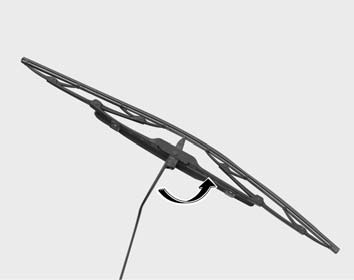
1. Raise the wiper arm and turn the wiper blade assembly to expose the plastic locking clip.
NOTICE
Do not allow the wiper arm to fall
against the windshield, since it may chip
or crack the windshield.
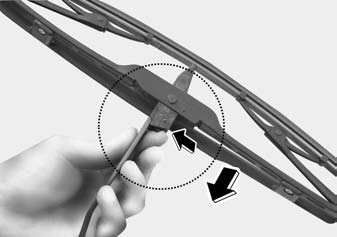
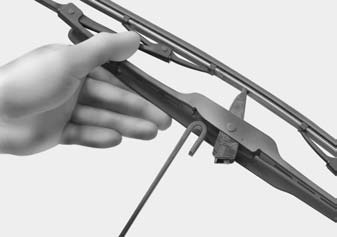
2. Compress the clip and slide the blade assembly downward.
3. Lift it off the arm.
4. Install the blade assembly in the reverse order of removal.
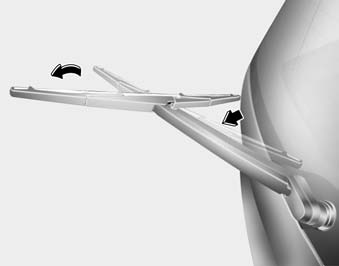
Rear window wiper blade replacement (if equipped) 1. Raise the wiper arm and pull out the wiper blade assembly.
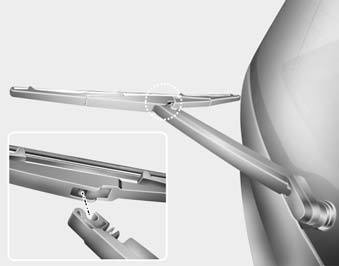
2. Install the new blade assembly by inserting the center part (1) into the slot (2) in the wiper arm until it clicks into place.
3. Make sure the blade assembly is installed firmly by gently pulling on the blade.
See also:
Safety
The Kia Sportage boasts six standard airbags -- front and side-impact airbags
for both driver and passenger, and side curtain airbags for both front- and
rear-seat occupants. Four-wheel antilock d ...
Interior Design and Special Features
Step inside the 2010 Kia Sportage and you'll find a pleasing interior with
seating for up to five passengers. Build quality and materials are also
generally good, with the exception of a few cheap ...
If the engine overheats
If your temperature gauge indicates overheating,
you experience a loss of power,
or hear loud pinging or knocking, the
engine is probably too hot. If this happens,
you should:
1. Pull off the roa ...


